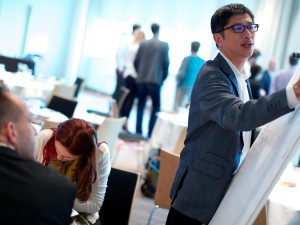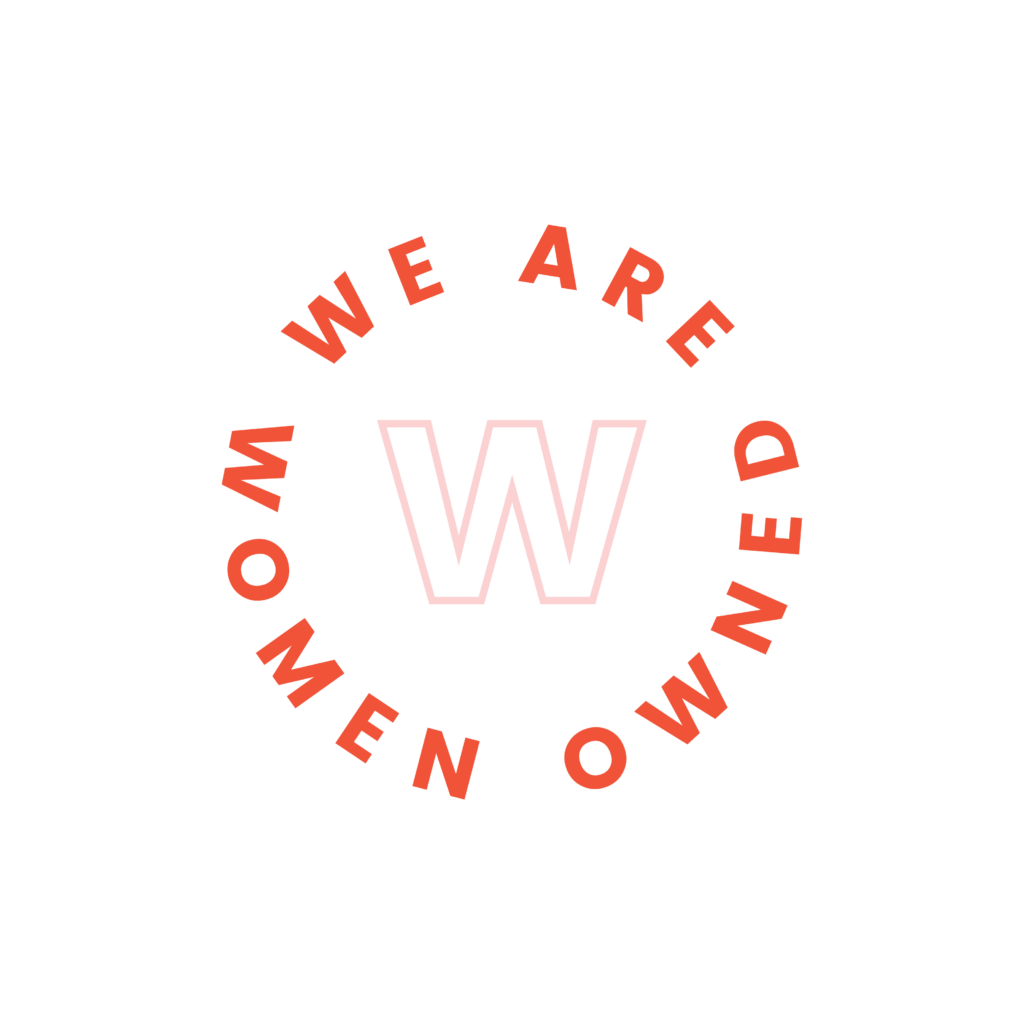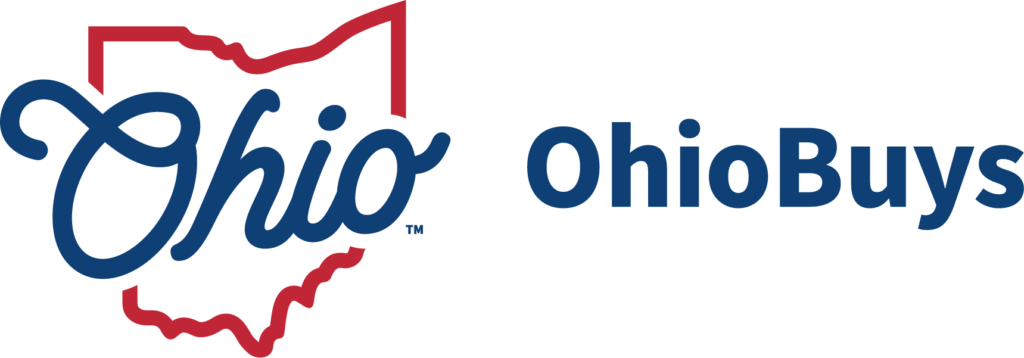On September 28-30, 2011, S4 Senior Consultant Nicholas Wolfson presented at the 2011 International Human Resource Conference, sponsored by The Graduate Institute of International Human Resource Development at the National Taiwan Normal University campus in Taipei, Taiwan.
We recently had a chance to catch up with Nicholas to ask him about his travels and the focus of this year’s conference, Human Resource Development for Sustainability.
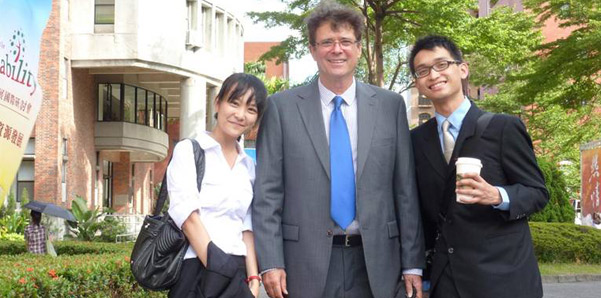
![]()
S4: “Nicholas, welcome back! How was your trip and what were some of the main takeaways from the conference?”
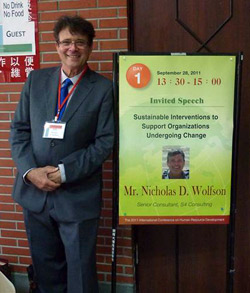 Nicholas: “Given the purpose of the conference – to look at sustainability and HR – my focus was to help companies make an impact; to encourage them to find better, cheaper, quicker, more innovative ways of getting work done.
Nicholas: “Given the purpose of the conference – to look at sustainability and HR – my focus was to help companies make an impact; to encourage them to find better, cheaper, quicker, more innovative ways of getting work done.
Programs or interventions focused on change at work can be great because they get employees excited, and they feel good about what they’re learning. But a week later, it’s all a distant memory and employees often revert back to their old habits.
Soon the intervention is an unclear memory of something that happened in the past with no actionable future.”
S4: “So what can companies do differently to ensure the proposed changes stick?”
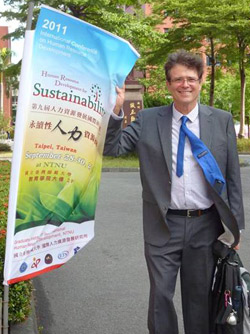
Nicholas: “The only way that change can be sustainable is if you work with the culture of the organization.
Consider this: if we take and remove all of the desks and computers and lighting and telephones and cubicles and equipment from the office, all you are left with are people and the relationships they have.
Making profound changes in the way they relate, the way they communicate, the way they handle relationships with one another, the kinds of agreements employees have with one another all influence the culture of an organization and whether or not the change will stick.
By addressing explicitly those sorts of conventions that govern how employees handle disagreements, leadership, view the company’s current condition and conceptualize future state – all of these practices and concepts can be seen in a new light. And when that occurs, lasting change can be accomplished and performance can be improved.”
S4: “Are there any stories or lessons that really stuck with you from the conference?”
Nicholas: “It was my goal to build strong relationships with the other attendees of the conference, so I made it my business to relate well and establish a connection with everyone I met across the campus.
Like many Asian countries, everyone you meet in Taiwan gives you their calling [business] card. By the time it was my turn to deliver the keynote at the front of the room, I had amassed 30 or so cards. So to start my session, I individually introduced all of the new people I had met over the course of the conference and talked about the particular way they welcomed me. This created a conversation with audience members prior to my talk and furthered my relationships with everyone from the stage.
In other words, I focused on cementing my relationships before beginning the task of my talk.”
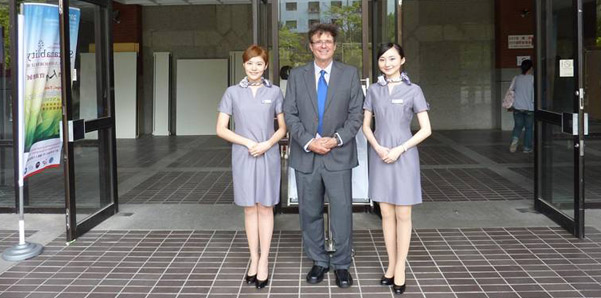
S4: “What effect do you think this had on attendees and the conference in general?”
Nicholas: “By being interested in people – developing relationships with attendees by paying special attention to the information people shared with me – there was much less of a need to be interesting on stage.
As a result, attendees surely listened. For the rest of my time on stage, I was talking with them – not to them – as the keynote speaker.
You see, at every conference, there are three groups of people:
- those who want to be there and are eager to learn;
- “tourists” – as long as it’s interesting, they are happy to listen; and
- “prisoners” – who have to be there or have been forced to attend, and are under duress.
As a presenter, you need to be able to speak to all three groups. You obviously need to know your stuff and show you’re an expert on your topic. But also, you need to be interesting enough to listen to, effective speaker.
But by combining effective speaking skills with having developed those relationships with the attendees prior to beginning, I had their complete attention throughout the session.
I was given an hour and a half time slot to speak, and based on everyone’s eye contact and body language, I could tell the audience was engaged and that everyone was present, alert, and eager to listen and learn the entire time.
When I concluded my presentation right at the 90-minute mark, the head of conference asked to keep going because of the interest from the group! I flattered and it was a real honor to know that I made a positive impact on the conference.”
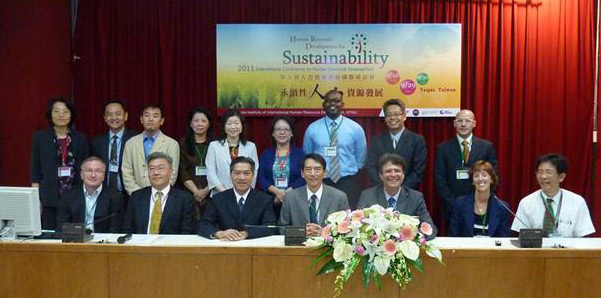
If you would like to learn how S4 can help your organization effectively realign the culture of your organization, please contact us at 800-423-7839.

